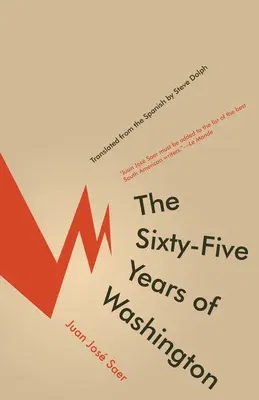With meticulous prose, rendered by Dolph's translation into propulsive
English, Saer's The Sixty-Five Years of Washington captures the
wilderness of human experience in all its variety.--New York Times
It's October 1960, say, or 1961, in a seaside Argentinian city named
Santa Fe, and The Mathematician--wealthy, elegant, educated, dressed
from head to toe in white--is just back from a grand tour of Europe.
He's on his way to drop off a press release about the trip to the papers
when he runs into Ángel Leto, a relative newcomer to Santa Fe who does
some accounting, but who this morning has decided to wander the town
rather than go to work.
One day soon, The Mathematician will disappear into exile after his
wife's assassination, and Leto will vanish into the guerrilla
underground, clutching his suicide pill like a talisman. But for now,
they settle into a long conversation about the events of Washington
Noriega's sixty-fifth birthday--a party neither of them attended.
Saer's The Sixty-Five Years of Washington is simultaneously a
brilliant comedy about memory, narrative, time, and death and a moving
narrative about the lost generations of an Argentina that was
perpetually on the verge of collapse.
Juan José Saer was the leading Argentinian writer of the post-Borges
generation. The author of numerous novels and short-story collections
(including Scars and La Grande), Saer was awarded Spain's
prestigious Nadal Prize in 1987 for The Event.
Steve Dolph is the founder of Calque, a journal of literature in
translation. His translation of Juan José Saer's Scars was a finalist
for the 2012 Best Translated Book Award.

